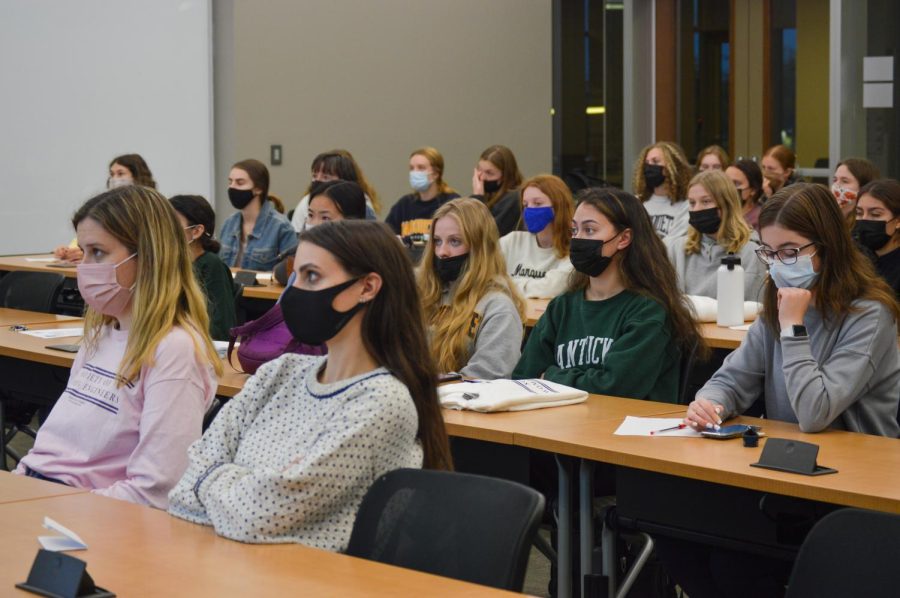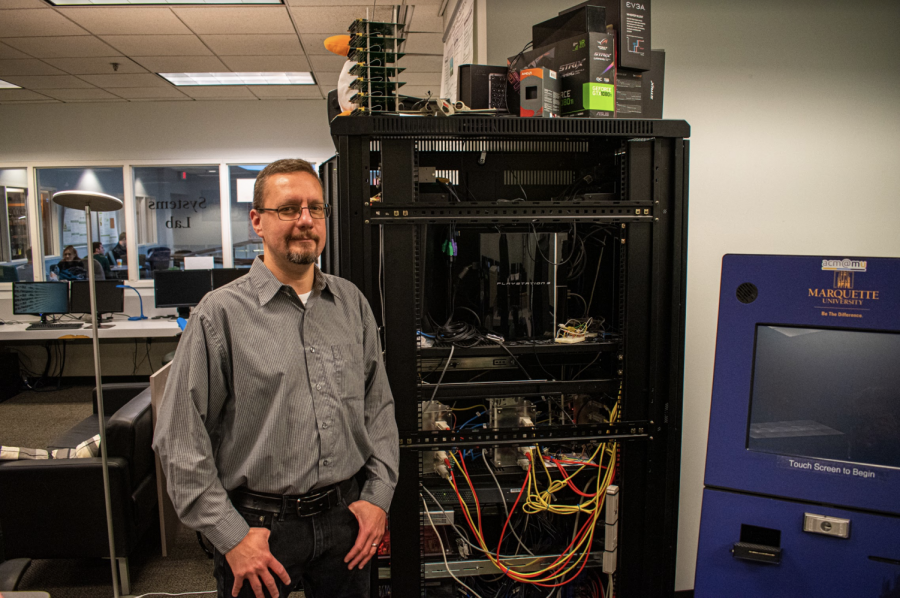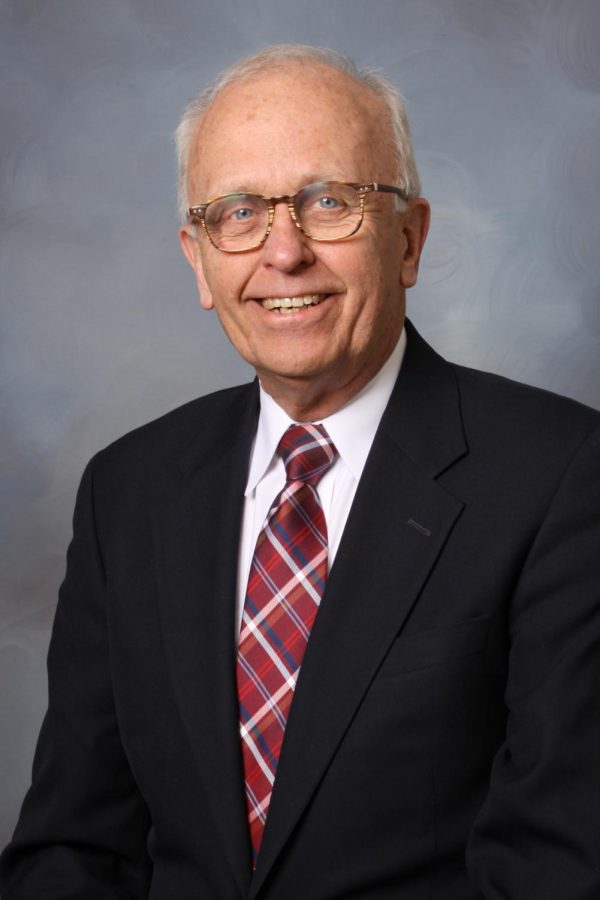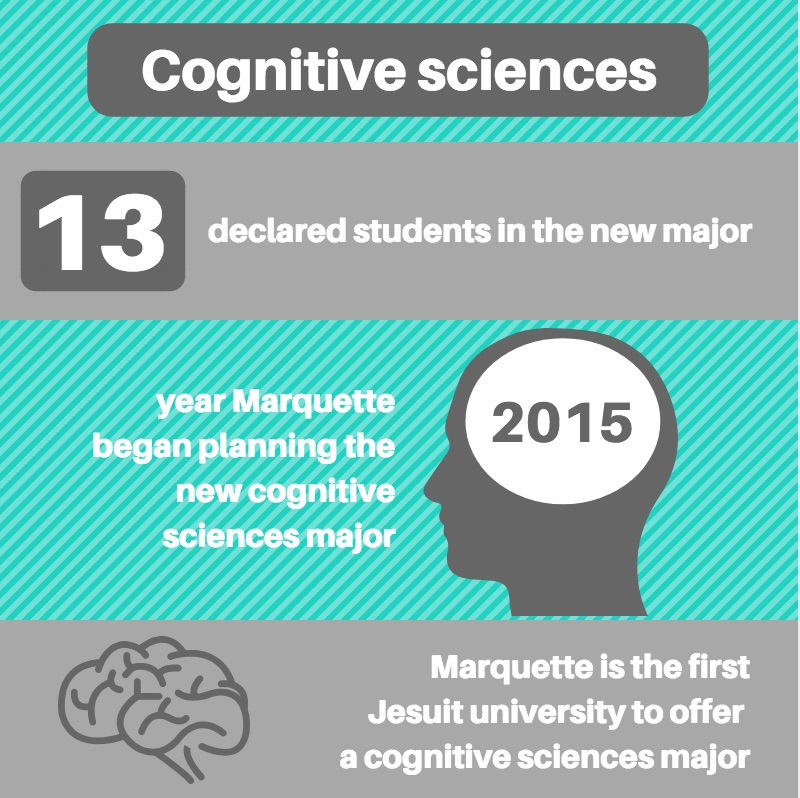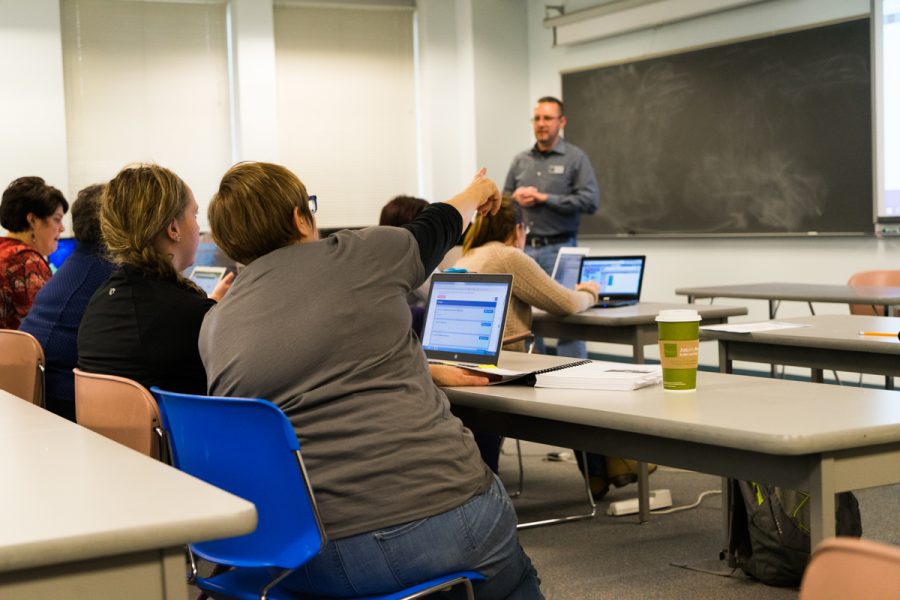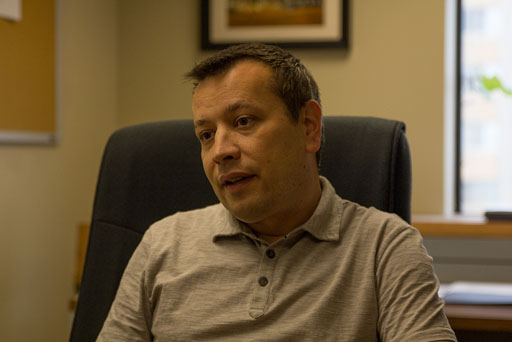The National Science Foundation granted Marquette $844,000 to lead an ambitious $1 million, three-year collaboration to increase computer science courses in high schools throughout Wisconsin.
The goals of the collaboration are to double the number of computer science teachers and increase the number of 9th and 10th grade introductory computer science courses. The collaboration includes the University of Wisconsin–La Crosse, the Wisconsin Department of Public Instruction and the Wisconsin–Dairyland chapter of the Computer Science Teacher Association.
Gary Krenz, professor and department chairman of mathematics, statistics and computer science, said he believes aiding in the development of high schools’ computer science curriculums and helping teachers become certified to teach computer science courses are instrumental practices to increase the number of computer science students.
“If high school students have a chance to learn about computer science via an engaging curriculum, then they may view computer science as an interesting and exciting field of study,” Krenz said. “Hopefully, these students will continue to pursue an interest in computer science beyond high school.”
According to the Bureau of Labor Statistics, the next decade will see a projected 1.4 million new jobs related to computer science. Nationally, two- and four-year colleges are on track to produce an estimated 400,000 graduates from appropriate degree programs, leaving a million jobs unfilled nationally.
At Marquette, the number of computer science majors remained between 35 and 48 students between 2008 and 2013, according to the Office of Institutional Research and Assessment.
Dennis Brylow, associate professor of mathematics, statistics and computer sciences and grant collaborator, said this is largely because people simply do not realize what computer science is.
“They think it is just like surfing the web but somehow more,” Brylow said. “There are students entering college who think it must require playing a lot of video games, or that it will mean sitting in a basement with a bunch of pale males wearing pocket protectors and trading Star Trek quotes. They don’t think of it as a rewarding and rapidly growing field that allows you to shape the technology that is remolding our society. They don’t think of it as integral to curing cancer, exploring space or changing the way everyone lives and works.”
Brylow continued to explain that although technology has greatly advanced, the school system has not evolved with it.
“In the past decade and a half, the explosion of the Internet, smartphones and embedded computer systems now means that everyone has piles of business data and websites and computer models and safety-critical software,” he said. “But our education system from middle school on through college has not really adapted to this situation at all.”
The collaboration project hopes to change these stereotypes and create more opportunities for students to learn about computer science.
“When computer scientists are big, high tech employers are surveyed, the large majority indicate that they first got interested in the field of computer science in high school or earlier,” Brylow said. “The overwhelming majority of high school students currently don’t even get the opportunity to see an ‘on ramp’ for the best-paying jobs in one of the fastest growing segments of our new economy.”
In Wisconsin, 85 percent of high schools have no computer sciences courses. In Milwaukee Public Schools specifically, only one in 26 high schools has an advanced placement computer science course.
Part of the grant money will go directly toward supporting teachers who want to earn computer sciences teaching licenses or are simply interested in taking a few courses.
Another part of the project is for high school teachers in other fields like math, science, business and English to learn about teaching a new course called “Exploring Computer Science.” The course is designed as an introduction for students who have never taken computer science before.
“It has been launched in several other larger cities, but Marquette would be leading the way to getting it into schools here in Wisconsin,” Brylow said. “(I) hope students will get a better understanding of what careers are possible in computing and a clearer idea of how computing relates to many other sciences, technology and engineering fields.”


